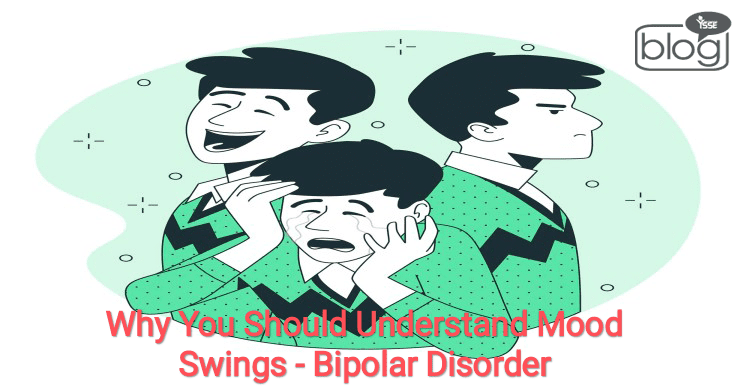Have you experienced feeling overly happy or too much sadness in your life? Feeling serious mood swings can bring harm to a person’s daily life. You may have noticed that you’re having trouble sleeping. Does your eating habit change? Feeling tired all day? Lots of people experience ups and downs in their life. Many people have trouble making decisions. They can’t concentrate completely. But if you notice that you’re feeling extremely depressed that experience is bipolar disorder.
Bipolar disorder is a serious mental health condition that causes extreme mood swings. It affects a person’s mood, energy levels, and ability to function. It changes a person’s thinking, judgment, memory, behavior, and sleep. It might lead to migraines, high blood pressure, and heart attacks.
People with bipolar disorder experience episodes of extreme highs or feeling energetic, called manic episodes, and extreme lows or feelings of sadness, called depressive episodes.
Bipolar disorder happens for some reasons, they are-
- Genetic factors, such as generation by generation of a person who has a family history of that disorder.
- Mental health issue
- Hormone factors, such as poverty, pregnancy, menopause.
- Neglected people who are always neglected by family, and friends.
- Living under stress, such as over-thinking.
- Loneliness.
- Abused or having trauma such as drug use or harassment.
There are some signs and symptoms of bipolar disorder, for example-
- Manic episode:
- Full of energy
- Feeling irritated
- Talks too fast
- Risky behavior
- Make impulsive decisions
- Sleeps less
- Depressive episode:
- Depression
- Feelings of sadness,
- Anxiety
- Sleep less
- Changes in appetite, eating more or less than usual
- Feels no interest in everyday activity
- Feeling less concentrate
- Hopelessness
- Isolation
A person needs to understand bipolar disorder. Nowadays stress has become very common in everyone’s life and getting depressed. There are symptoms of mania or depression that may appear for days, weeks, or years.
There are four main types of Bipolar disorder:
- Bipolar I disorder:
You’ve had at least one high or manic episode, usually lasting much longer than a week. This disorder has both manic and depressive episodes present. When depressive and manic symptoms happen at the same time they are called a mixed episode. Most people with bipolar 1 are deeply depressed. A manic episode usually lasts 3 to 6 months if left untreated. Depressive episodes last longer like 6 to 12 months without treatment.
- Bipolar II disorder:
Severe depression consists of multiple episodes, but few manic episodes, this is called ‘hypomania’. that affects mood, thoughts, and behaviors. It’s less severe than bipolar disorder I.
Here at least 1 hypomania episode that lasts at least 4 days and involves 3 or more hypomania symptoms. Even if you have changed, you can carry out daily tasks.
- Cyclothymic disorder:
Cyclothymic disorder or cyclothymia is a milder mood disorder. It’s a low-level depression followed by mild mania (hypomania).
Treatment:
Bipolar disorder is treated with medications and psychological counseling or psychotherapy.
Bipolar disorder stops a person from completing their daily tasks, which is why you to know about this disorder to help if your known person has the same symptoms or signs, to care and successful treatment it’ll be manageable.
To read more blogs click here.
Writer,
Towhida,
Intern, Content Writing Department
YSSE

